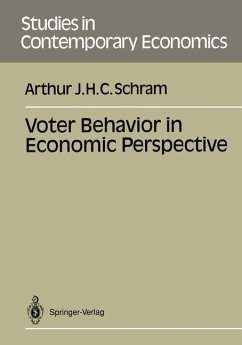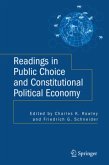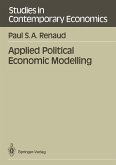In this book voter behavior is analyzed from an economist's point of view. The influence of an economy on voter behavior is investigated and this behavior is analyzed in the perspective commonly used by economists. Econom(etr)ic tools are applied in the analyses. The book contains empirical analyses linking demographic variables to voter turnout and party choice using cross-section data for the Netherlands. Attention is focused on whether turnout and party choice decisions are taken sequentially or simultaneously by voters. An empirical test supports the former. Using these results, behavioral models of party choice and voter turnout are developed. Existing econometric analyses of voting behavior are put on a more solid theoretical footing. In both models a group perspective is used, in line with increased attention for this perspective in economics and political science. Empirical applications of the party choice model allow for an estimation of relative preferences for public goods, using the revealed preference mechanism provided by voting (intention). An alternative method for detecting these preferences, a new survey design, is discussed as well. In the turnout model, attention is fo- cused on the role of "civic duty" in a group context.








